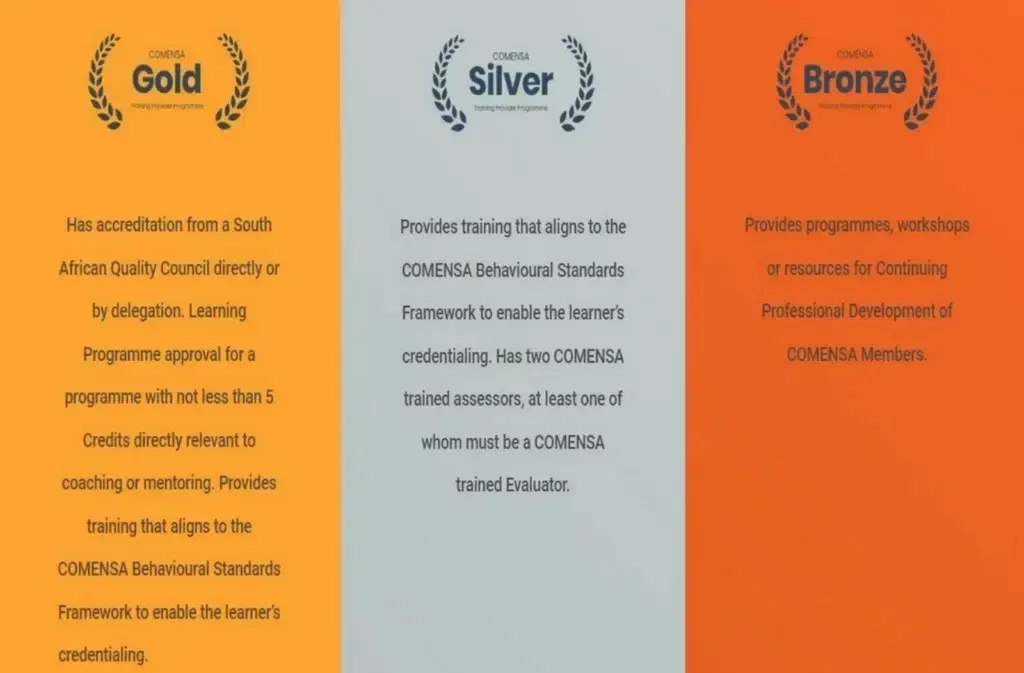
How to Select the Best Life Coaching Course in South Africa
This life coaching course guide will assist you in making one of the most important decisions if you want to become a life coach in South Africa.
Introduction: How to Select the Best Life Coaching Course in South Africa
The decision to select the right or best life coaching course is a crucial one for anyone aspiring to become a coach. We all want the best and something unique that resonates with us. It’s important to consider our budget as well. It’s important to consider our budget as well.
The main objective when evaluating different life coaching courses is to find one that provides all the necessary preparation for a successful start. Fortunately, there is a course available for everyone, whether you aim to switch careers, have life coaching as a side business, or incorporate coaching skills into your current role.
However, determining the most suitable option can be challenging, as a basic online search yields numerous results. With an overwhelming number of programmes available, individuals who are new to the field may struggle to prioritise their selection when it comes to choosing the best life coach training course.
Despite your eagerness to begin your life coach training, taking some time for preparation now will greatly benefit you in the future. Failing to conduct thorough research may result in dissatisfaction with a costly programme.
Are you searching for the ideal life coaching course that aligns with your specific circumstances? Which programme best caters to your educational goals, career aspirations, values, and personality? Let’s explore the factors you should consider while selecting a life coaching course.
Considerations when selecting a life coaching course.
One of the best things about becoming a life coach is the chance to grow as a person. Life coaches work with people all the time to help them deal with problems and reach their goals. When you do this, you have to think about your own ideals, beliefs, and actions. Self-reflection can help you grow as a person by making you more aware of your own strengths and weaknesses, teaching you new ways to communicate and solve problems, and giving you a better understanding of how people think.
Training Curriculum That is Well-Balanced.

Will the curriculum provided give you the necessary knowledge and tools for success? The top life coaching training courses will offer a comprehensive range of resources, including coaching process templates and strategies for building a business.
A quality curriculum will strike a balance between theory and practical application, adhering to industry standards and encompassing a coaching mindset, skill set, and tool set. A curriculum that lacks practical training, relying solely on classroom instruction and knowledge transfer, will not help you reach your full potential as a coach.
Consider prioritising foundational coach training over niche training. It is important not to rush into specialised coaching training too early. When you train to become a Health and Wellness Coach, a Mindset Coach, or a Career Coach, the focus will mainly be on the specific tools and intricacies of that specialty rather than on building strong foundational coaching skills. Instead, seek out practical coach training that will aid in developing coaching mindsets, skill sets, and tool sets. By doing so, you will be equipped to effectively coach individuals through any situation.
Questions to Ask in Evaluating the Life Coaching Course
- During this training, what will be covered?
- By the end of it, what will I have acquired?
- How will I be equipped to work with clients?
- Will I obtain the necessary practical knowledge and tools to start my coaching practise?
- What resources are provided, such as templates, scripts, and administrative assistance?
- Does the curriculum focus on a specific area or take a broader approach?
Promises That is Reasonable
Some life coaching courses make extremely enticing claims. You know what we’re talking about: promises of earning a six-figure income in your first year and effortlessly acquiring clients, all for just R 4000.00. It is crucial to be cautious when confronted with such promises. If something sounds too good to be true, it usually is.
Take a careful look at each programme you are considering with a positive but critical mindset. Does what is being offered align with the price and duration of the training? If what is being promised seems unattainable over the span of a single weekend, trust your instincts. Life coach training requires a long-term commitment to yourself and your future. It’s not an area where you should try to cut corners!

Questions to Ask in Evaluating the Life Coaching Course
- Are the offerings of this life coaching course realistic and attainable?
- What knowledge will I gain from this programme?
- What concrete opportunities will be accessible to me once I finish the course?
- Is there any evidence to back up the promises made by the programme?
- Can I expect my coaching practise to be financially viable after its establishment?
Ideal Match for Your Way of Living
It is important to consider your own preferences when choosing a life coaching course. With a wide variety of programmes available, it is possible to find one that meets your specific needs. Many coaching programmes offer flexibility, including online classes in the evenings and on weekends, which is beneficial for those with busy schedules due to careers, families, and other commitments.
However, it is important to note that these programmes often require a significant amount of time and dedication. Therefore, it is essential to evaluate your lifestyle and determine how much time you can allocate for classes, homework, and practise sessions. For instance, if you have a full-time job or multiple jobs, are a parent to young children, or frequently socialise with friends on weekends, it is crucial to consider these factors before committing to a programme.
Questions to Ask in Evaluating the Life Coaching Course
- When and where does the training occur?
- How is it delivered?
- Do you prefer in-person, phone, or online video classes?
- What is the class size?
- How much individual attention will you receive?
- What are the values of the training institution and the pillars of the coach training programme?
- How much time do you need to commit each week for certification or graduation?
- Is there flexibility for unexpected breaks?
- Do you prefer a school that trains many people or one with smaller groups and more opportunities for interaction?
- How important is it to have a like-minded community for personal and business growth?
- Who are the people you aspire to be like?
Positive, Independent Testimonials
What is the real experience of being a student in this programme? Will you be equipped to become a coach after completing it? How are graduates of this programme applying their training?
It’s important to go beyond just reading marketing materials, visiting the website, attending webinars, or talking to admissions. You should also talk to individuals who have gone through the programme.
Explore their personal experiences and how they are currently using what they learned.
It may seem unusual, but not all coaching programmes offer practical tools. Determine if the programmes you’re interested in actually practise what they preach. Request to speak with successful learners who have completed the programme.
Questions to Ask in Evaluating the Life Coaching Course
- Obtain a couple of references from the training institution and reach out to them directly.
- Inquire about their expectations from the programme and whether it fulfilled them.
- Assess the overall impact of the training on their personal growth.
- Determine the relevance of what they learned to their current activities.
- Seek information regarding the ongoing support provided to alumni.
- If given another chance, would they still opt for this training programme?
- Lastly, evaluate the instructor’s expertise and qualifications.
Accreditation and Certification
In the South African context, this factor holds great significance, possibly even being the most crucial one. Is certification necessary for you? The first step in your coaching journey is obtaining certification. After that, you can consider membership and credentialing as potential next steps.
All institutions offering education and training must apply for accreditation from an Education and Training Quality Assurance (ETQA) body that the South African Qualifications Authority (SAQA) recognises. This is a legal requirement, and only SAQA and/or the Department of Higher Education and Training have the authority to endorse a Certificate of Competence in South Africa. Any other certifications are simply Certificates of Completion.
Due to the lack of regulation in the coaching field, individuals have the freedom to create their own coaching programmes and even establish their own certification processes. In South Africa, COMENSA serves as a professional organisation for coaches and mentors. Although it is a non-statutory body, its members (coaches) are required to adhere to its Code of Ethics.
This association also offers a means for clients to address any ethical concerns through its complaints procedure.
Furthermore, COMENSA now possesses the power to assess and endorse training providers, categorising them as Gold, Silver, or Bronze.

- The Gold level is granted to an establishment that fulfils the following criteria: The training is officially recognised by the South African Quality Council (SAQA) and offers a programme with a minimum of five credits directly related to mentoring or coaching. Additionally, the training must align with COMENSA’s Behavioural Standards Framework, which allows learners to receive credentials. Moreover, the institution must employ at least two assessors trained by COMENSA, with one of them being a trained evaluator.
Institutions offering life coaching courses are granted - Silver status when their courses adhere to COMENSA’s Behavioural Standards Framework and have a minimum of two assessors, one of whom must be a trained evaluator.
- Bronze status is awarded to institutions that provide Continuous Professional Development opportunities for COMENSA members through workshops, programmes, or resources.
While there may be a few commendable life coaching courses lacking independent accreditation or any accreditation at all, it is crucial to consider the significance of being accredited. Accreditation acts as a safety measure, safeguarding you from legal repercussions, saving both time and money, and shielding you from deceptive qualifications and training providers. Furthermore, it serves as a means to convey to your clients the substantial value of your qualifications, thereby aiding in the promotion of your services and brand.
Let’s summarise this important requirement.
The training facility must first have SAQA accreditation. Then, COMENSA must evaluate it in gold, silver, and bronze categories, with “gold” being the obviously highest standard. Finally, it can be internationally accredited as an option if you want to open up more opportunities for coaching in the international market in the future.

LEDISA Coaching Academy’s Most Important Accreditation & Registration
Questions to Ask in Evaluating the Life Coaching Course
- Can you explain the distinctions between accreditation, vetting, credentialing, and registration?
- Once I finish my studies, can I become a registered and credentialed coach?
- If so, which organisation would I register with?
- What are the criteria for obtaining credentials?
- Is the training provider accredited by SAQA?
- If not, what is the reason for the lack of accreditation?
- Has COMENSA reviewed and approved this training programme?
- If yes, what status does the learning programme have – gold, silver or bronze?
- If not, what is the rationale behind it?
- Does the training programme hold accreditation from either the ICF or the ICR?
- If not, what are the reasons for not having it?
Guidance and Support for Starting a Business
Concerns about attracting clients after completing a life coaching training programme are common among students. It is crucial for a good training programme to offer guidance on expanding your client base.
However, it is important to remember that training is just the beginning and obtaining certification as a life coach does not automatically guarantee clients. Building a clientele requires effort and patience, as it takes time. It is worth considering whether you need business and entrepreneurial training in addition to coaching skills, as not all programmes include this aspect.
If a programme claims to offer such training, it is important to inquire about the specific content and whether there is a dedicated module on the topic.
Most reputable universities and colleges offering life coaching certification programmes typically offer courses that can support individuals in launching their own life coaching businesses. It is advisable to inquire about the availability of resources such as contract templates, invoices, evaluations, marketing materials, and similar tools that can aid aspiring coaches in getting started.
Questions to Ask in Evaluating the Life Coaching Course
- Am I considering starting my own coaching business?
- What skills and experience do I possess that make me suitable for entrepreneurship?
- In which areas do I need to enhance my current knowledge?
- Which business development skills are covered in this programme focused on life coaching?
A Community that Provides Support
Life coaching courses are not a shortcut to making money fast! It takes patience and determination to establish and sustain a successful coaching practise. There is always more to learn and unexplored opportunities, regardless of your location. This is why having a close-knit coaching community is invaluable.
Whether times are good or bad, whether you achieve victories or face challenges, it is important to have friends who understand the unique experiences we encounter professionally, even when our loved ones may not fully grasp them.
Starting out as a coach can still be unsettling, despite your dedication, enthusiasm, and education. Therefore, it is important to inquire about the support available for graduates in order to ensure their success. Some schools offer mentorship or supervision programmes for recent graduates, where experienced coaches provide guidance during the initial stages. This additional support can be highly advantageous.
Questions to Ask in Evaluating the Life Coaching Course
- Do you offer any support for new coaches in building their practise?
- Is there a mentorship programme that I can join after certification to assist in building my practise?
- If any, what is the cost of such a programme?
- Is there a post-graduate or Alumni group that I can join after certification?
- Do you provide any information, such as webinars, ebooks, or courses for future growth, as part of a membership programme?
- What does that include?
- Do you advertise the services of certified coaches afterwards?
- Do you refer clients to me after certification?
- Do you assist in registration or credentialing with COMENSA?
Why You Should Select LEDISA Coaching Academy as Your Certification Partner for Your Life Coaching Course
Comprehensive Life Coaching Course Curriculum
A comprehensive training curriculum that equips our life coaches with theoretical and practical components to work with clients, including all the tools and templates necessary.
Accreditation and Professional Membership
We are a SAQA Accredited Training Provider that offers you the option of full membership and/or credentialing with COMENSA, as well as accreditation with the International Coaches Register.
A Personal Approach
Exclusive knowledge, wisdom, and experience of a highly qualified Master Coach and facilitator coaching and training thousands of people with forty years of coaching, training, and business experience.
Business Practice and Marketing Module
The Life Coaching Course Curriculum includes a business practice and marketing module to help our coaches thrive in their own coaching practice.
Affordability
Our life coaching course is known nationally and internationally for its affordability, offering the best value for coach training in South Africa, based on extensive research.
GOLD Status
A Coaches and Mentors of South Africa (COMENSA) GOLD status programme aligned with the stringent quality control principles of the South African Qualifications Authority
Ready-to-Use Templates
Delegates receive a coach and client workbook filled with templates to use in every single coaching conversation during the process. That includes a new client kit, an onboarding process, and lots more.
Alumni Listing
Once you have received certification, we will list your services on our extensive coaching network, which receives hundreds of searches. Through this network, you can receive coaching clients for free.
Marketing Muscle
After certification, all our life coaches get registered on our free subscriber database, The Leadership Foundation, with the option to upgrade to full membership. Our members get free training to build and upskill their practises.
Membership Benefits
Our Leadership Foundation members qualify for membership benefits, including free monthly coaching kits, free monthly training courses, planners, discount coupons for future coach training, and lots more.

Do You Have What It Takes To Become a Life Coach
Download your free assessment tool to complete and see for yourself if you are ready to become a life coach.
Site Navigation
Recent Posts
Categories
Get Started
About Us
Services
Courses
Contact-Us
Terms of Use
Popular Courses
Dynamic Life Coaching
Christian NLP (CNLT)
Business Coaching
Relationship Coaching
Relationship Recovery Coaching
Resources & Information
Articles
Coaching Tools
e-Bookstore
Free Downloads
Privacy Policy
Follow Us



© All rights reserved. 2024 - LEDISA Academy (Pty) Ltd.
Made with ❤ by LEDISA Design Studio